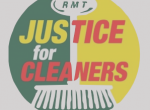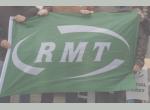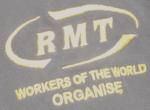Fares hikes hit lower- and middle-income families disproportionately hard
PASSENGERS ON privatised UK trains are having to fork out £4.6 billion a year more than equivalent travellers in France, where railways remain publicly owned, a study undertaken for RMT, Britain's biggest rail union, has found.
Research undertaken by Just Economics calculated that, mile-for-mile travelled, UK rail passengers would save £4.6 billion a year if fares were set at the same level as France, where they are four times cheaper.
The research, which forms part of A Fare Return, a larger comprehensive study to compare UK rail with the networks of France, Italy, Germany and Spain, also found that:
- Fares hikes increase social exclusion for lower- and middle-income families because they are being completely priced out of the rail market
- Overcrowding on UK rail is far worse than in the comparator countries. The value of achieving the same passenger-to-seat ratio in France was assigned a proxy "comfort value", which was worth almost £3 billion a year. A summary of the study's findings so far is below.
Report author Eilis Lawlor, an expert in value-for-money studies, said: "This report puts figures on what everyone already knows - that trains in other countries work much better but are also cheaper.
"The logic behind the privatisation of the UK's railways was to increase efficiency and reduce costs. This clearly has not happened, yet we are still being told that rail networks can only be run effectively by the private sector."
RMT general secretary Bob Crow, at RMT's Fort William AGM, said:"Like the McNulty review, this study compares privatised UK rail with European services, but, unlike McNulty, it has not turned a blind eye to the huge social and economic cost of privatisation.
"We already knew that Britain's railways are the most expensive in Europe, but this study exposes the shocking degree to which UK rail users are being fleeced by the greed and stunning inefficiency of the rail privateers and made to suffer unnecessary overcrowding.
"This study shows that we have a choice - the bleak McNulty-ConDem future of massive fares hikes and a frighteningly de-staffed, overcrowded, and undermaintained network being sweated for profit, or the successful, efficient and eco-friendly model of public investment in a public railway.
"The wrong choice made today will have a disastrous impact that would take generations to repair, and that is why the McNulty report needs to be nailed and ditched before that damage is done."
Just Economics - A Fare Return?
Fares and overcrowding
The report compares fares and overcrowding on Britain's privatised rail system with railways in France, Italy, Germany and Spain, whose railways are far more integrated and on the whole publicly owned.
These are good comparator countries in terms of population size and socio-economic factors such as levels of disposable income.
Fares
The report has found that fares in France are four times cheaper than those in the UK. In order to arrive at a figure demonstrating the cost of this difference to UK passengers we have applied this fare reduction to each passenger kilometre over a 35-year period (2015-2050), which gives us a discounted value to passengers of £162 billion.
If fares in the UK were similar to those in France, passengers here would translate into an annual saving to passengers of £4.6bn
Contrary to perceptions, although middle and high earners use rail services the most, the report shows that trains make up a relatively high proportion of the travel modes of lower earners. Any increases disproportionately hit low and middle-income passengers.
In addition, an emphasis on prioritising the road network in transport spending, coupled with the rise of out-of-town retail centres and other facilities that are often poorly served by public transport, has exacerbated issues of social inequality.
The poorest people in the UK have low car ownership compared with their counterparts in other countries, and they are consequently bigger users of public transport. Bus and rail fares have skyrocketed since privatisation and up to 50 per cent of people in the UK do not have access to some kind of basic service (such as schools, hospitals and food stores) by public transport.
Overcrowding
A comfortable train journey may seem a trivial thing but it is highly valued by passengers. There is a particular dislike for overcrowding and for shortages of seats. No other form of transport carries such a high risk of having to stand for long periods at peak times, and for passengers with long commutes this can involve important working time.
The report models the benefits to the UK of achieving the same passenger/seats ratio as France. In order to arrive at a proxy value we estimated the differences in economy and first class fares between the UK and France. A benefit of first class is that there is always a surplus of seats, so passengers are guaranteed one. The difference in fare between first and economy classes represents what people would be prepared to pay for increased comfort, all things being equal. The proxy value of increased comfort to passengers is £104 billion between now and 2050 or £2.97 billion per year.
Authors
Eilís Lawlor is a director at Just Economics and an expert Social Return On Investment practitioner. She has authored numerous reports on a wide range of policy areas, including transport and regeneration policy, children's policy and preventative services, criminal justice and homelessness. She is a co-author of the Cabinet Office guide to Social Return on Investment.
Technical support on the report was provided by Dr Stephen Spratt, a Research Fellow at the Institute for Development Studies
Just Economics
Just Economics is a social and economic research company specialises in economic analyses of social issues and in have particular expertise in using measurement approaches such as Social Return on Investment. Previous clients have included The Booktrust, The Football Foundation, The Jamie Oliver Foundation and The International Institute for the Environment and Development (IIED), Stamp Out Poverty.
Read more at www.justeconomics.co.uk
- 2694 reads






